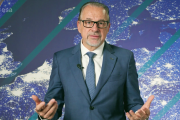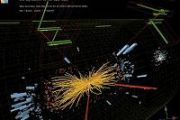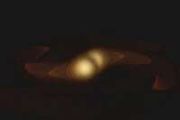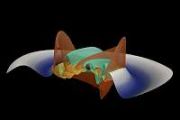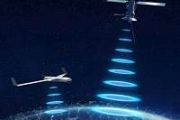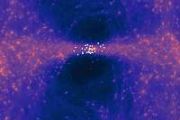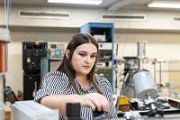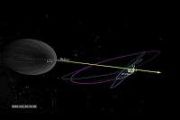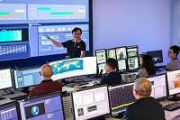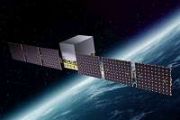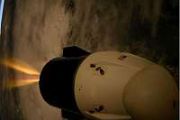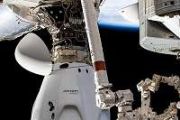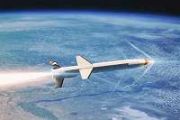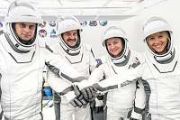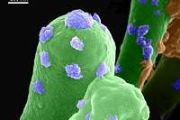
Copernical Team
Take off with ESA Impact! Ariane 6 and astronaut news await
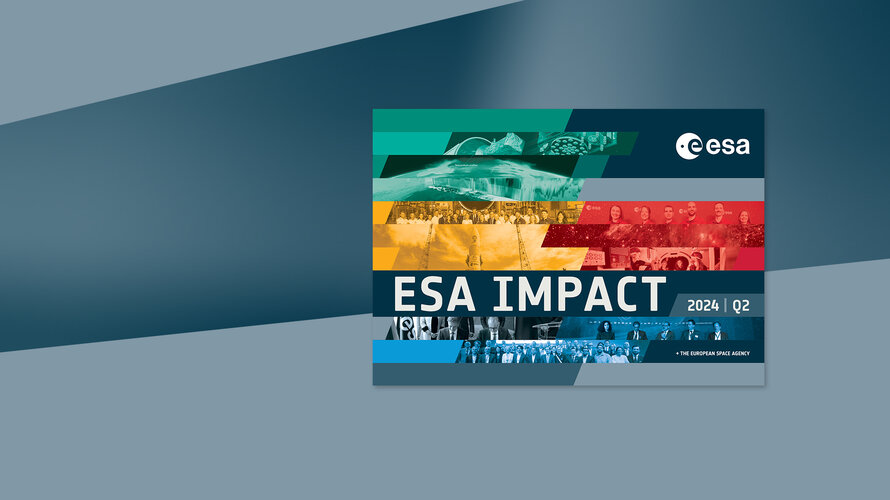
Take off with ESA Impact! Ariane 6 and astronaut news await
Welcome to the 2024 second quarter edition of ESA Impact.
The science behind splashdown—aerospace engineer explains how NASA and SpaceX get spacecraft safely back
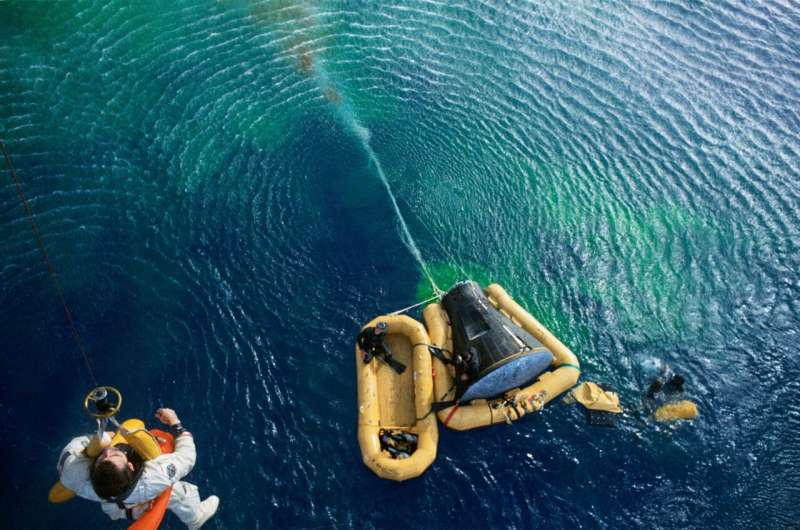
For about 15 minutes on July 21, 1961, American astronaut Gus Grissom felt at the top of the world—and indeed he was.
Grissom crewed the Liberty Bell 7 mission, a ballistic test flight that launched him through the atmosphere from a rocket. During the test, he sat inside a small capsule and reached a peak of over 100 miles up before splashing down in the Atlantic Ocean.
A Navy ship, the USS Randolph, watched the successful end of the mission from a safe distance. Everything had gone according to plan, the controllers at Cape Canaveral were exultant, and Grissom knew he had just entered a VIP club as the second American astronaut in history.
Grissom remained inside his capsule and swayed on the gentle ocean waves. While he waited for a helicopter to take him onto the USS Randolph's dry deck, he finished recording some flight data. But then, things took an unexpected turn.
An incorrect command in the capsule's explosives system caused the hatch to pop out, which let water flow into the tiny space. Grissom had also forgotten to close a valve in his spacesuit, so water began to seep into his suit as he fought to stay afloat.
SpaceX knocks out morning launch with record booster from Cape Canaveral

SpaceX got back to a quick pace between launches with another Starlink mission from the Space Coast on Thursday using its fleet-leading booster for a record flight.
A Falcon 9 rocket carrying 23 of its Starlink satellites lifted off from Cape Canaveral Space Force Station's Space Launch Complex 40 at 7:14 a.m.
The first-stage booster for the flight made its record-breaking 22nd trip off the pad, having previously flown crewed missions Inspiration4 and Axiom Space's Ax-1, as well as 19 other missions.
It made another landing downrange in the Atlantic on the droneship Just Read the Instructions.
That marks 325 booster recoveries for the company and 294 reflights. SpaceX has three other boosters with 20 or more flights under their belt.
The launch comes just two days since the first Falcon Heavy launch of the year at nearby Kennedy Space Center and four days since the last launch at Canaveral's SLC-40.
This was the 48th launch from all Space Coast launch pads for the year, with all but three coming from SpaceX.
2024 Orlando Sentinel. Distributed by Tribune Content Agency, LLC.
Wind tunnel study shows hypersonic jet engine flow can be controlled optically
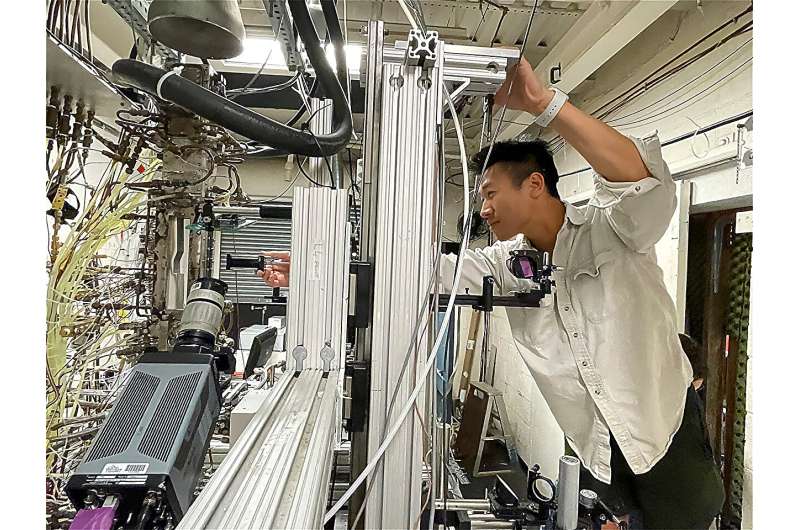
What if the future of space travel were to look less like Space-X's rocket-based Starship and more like NASA's "Hyper-X," the hypersonic jet plane that, 20 years ago this year, flew faster than any other aircraft before or since?
In 2004, NASA's final X-43A unmanned prototype tests were a milestone in the latest era of jet development—the leap from ramjets to faster, more efficient scramjets.
NASA advances research to grow habitats in space from fungi
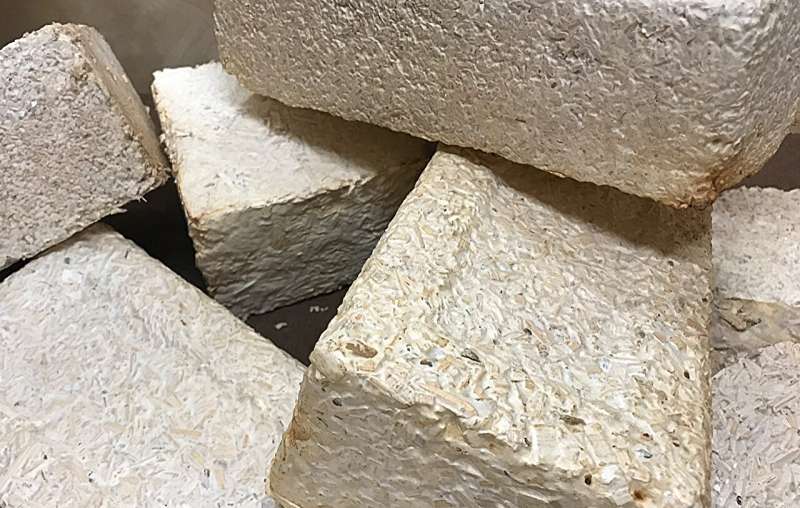
As NASA prepares for long-duration missions to the moon and Mars for the benefit of all, a habitat-growing concept selected Wednesday by the agency could help "grow" homes using fungi for future explorers.
A team of researchers at NASA Ames Research Center in California's Silicon Valley will receive new funding under the NASA's Innovative Advanced Concepts (NIAC) program to propel their habitat research.
The Phase III NIAC award will provide $2 million over two years to continue technology development of the Mycotecture Off Planet project in preparation for a potential future demonstration mission.
China calls on scientists of all nations to study lunar samples, but notes obstacle with the US
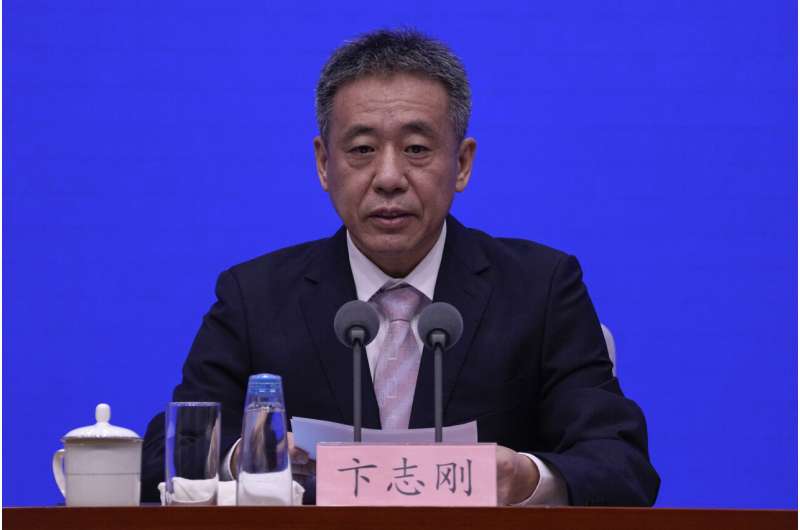
Space Team Europe for Ariane 6: Sergi Inglada
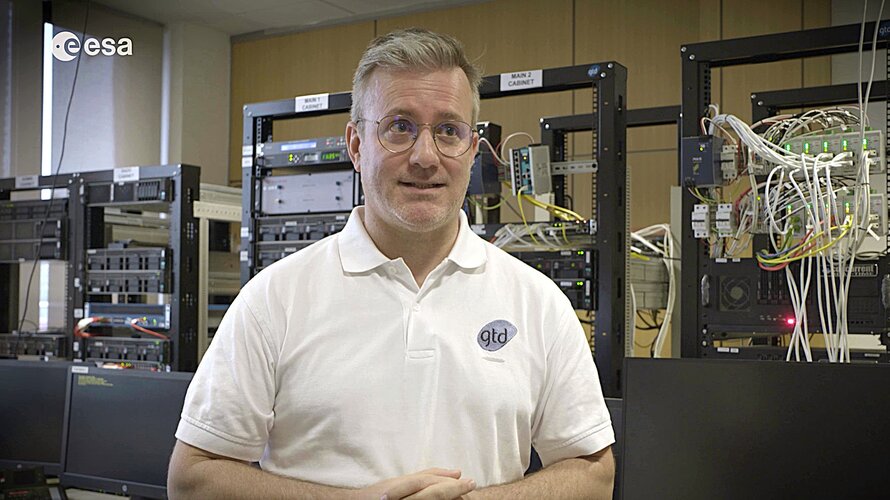 Video:
00:08:43
Video:
00:08:43
They say it takes a village to raise a child. To launch a rocket, we have the combined expertise and passion of Space Team Europe. Sergi Inglada, Control Bench Technical Manager for GTD, is one of many making the first Ariane 6 launch possible and has been interviewed as part of a series highlighting some of the people that make up this dream team.
Sergi has been interested in space ever since he was a child and studied engineering at INSA in Rennes, France. After discovering the dynamism, operations, diversity and technology at Europe’s Spaceport he started working
Predicting bodily changes in astronauts through blood sample analysis
 The acceleration of space exploration, spurred by astronaut recruitment and private space travel, signals a future where space travel becomes more common. However, many questions remain about the physical changes humans experience in space.
Known effects of weightlessness include muscle atrophy, reduced bone density, and fluid distribution changes. Recent research on mice and other organis
The acceleration of space exploration, spurred by astronaut recruitment and private space travel, signals a future where space travel becomes more common. However, many questions remain about the physical changes humans experience in space.
Known effects of weightlessness include muscle atrophy, reduced bone density, and fluid distribution changes. Recent research on mice and other organis ND Professor patents 3D printing of spacesuits
 Imagine being an astronaut on NASA's envisioned long-haul flight to Mars, and the unthinkable happens: components on your spacesuit break.
Given that Mars is roughly 140 million miles from Earth, getting replacement parts or a new suit is not an option. But Pablo de Leon, chair of UND's Department of Space Studies, has come up with a system to manufacture spacesuits and other parts while o
Imagine being an astronaut on NASA's envisioned long-haul flight to Mars, and the unthinkable happens: components on your spacesuit break.
Given that Mars is roughly 140 million miles from Earth, getting replacement parts or a new suit is not an option. But Pablo de Leon, chair of UND's Department of Space Studies, has come up with a system to manufacture spacesuits and other parts while o Moon Base Construction: ESA's Innovative Use of 3D-Printed Space Bricks
 ESA scientists have been exploring how a future Moon base might be built from materials on the lunar surface. Inspired by LEGO building, they have used dust from a meteorite to 3D-print 'space bricks' to test the idea. ESA's space bricks are on display in selected LEGO Stores from 20 June to 20 September, helping to inspire the next generation of space engineers.
The idea seems simple. Rat
ESA scientists have been exploring how a future Moon base might be built from materials on the lunar surface. Inspired by LEGO building, they have used dust from a meteorite to 3D-print 'space bricks' to test the idea. ESA's space bricks are on display in selected LEGO Stores from 20 June to 20 September, helping to inspire the next generation of space engineers.
The idea seems simple. Rat 

